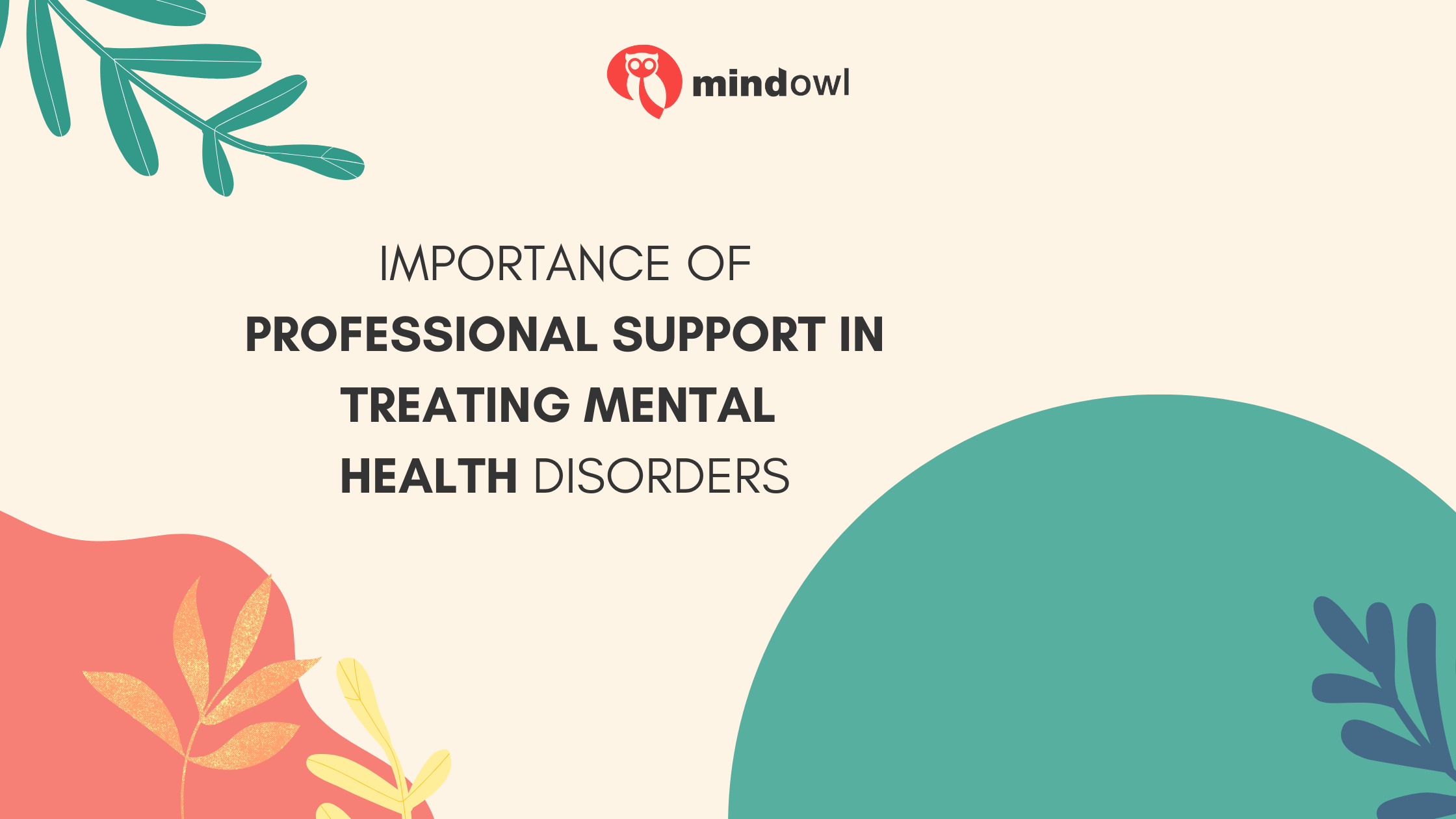Though mental well-being is an important health aspect, many people fail to appreciate it. Millions of people, regardless of age group, experience mental health problems like depression and bipolar disorders. If these disorders are not addressed, they significantly affect an individual’s daily life, relationships, and productivity.
Though some people might try to control their symptoms on their own, the complexity of mental health usually requires expert help. Professional support offers evidence-based treatments, organized therapy programs, and compassionate expertise to tackle mental health issues effectively. Getting expert aid is a necessary step toward rehabilitation and offers an effective way to regain control and improve the quality of life.

Understanding Mental Health
Mental health disorders are a broad spectrum of conditions influencing a person’s behavior, emotions, and thinking. Genetics, trauma, stress, or chemical abnormalities in the brain are some main causes of these disorders.
Among the most common mental health issues are anxiety disorders, depression, and post-traumatic stress disorder, but there are many other problems that require attention. An accurate diagnosis of these illnesses requires professional help.
Professional cognitive behavior therapists ensure that people obtain suitable and focused treatment for underlying problems. Without proper guidance, people may misinterpret or downplay their symptoms, which can delay recovery or worsen their condition.
Personalized Therapy Programs
As every individual’s experience with mental health issues is different, a one-size-fits-all treatment is not effective. Expert mental health professionals design personalized treatment strategies catered to your demands and situation. These programs combine psychotherapy, and behavioral therapy among other modalities.
When developing a treatment plan, professionals also consider elements including the patient’s lifestyle, support system, and co-occurring illnesses. This customized approach guarantees that people get the best help for their particular circumstances and improves their chances of positive results.
The Role of Therapy in Recovery
The foundation of mental health care is therapy, and its importance cannot be overstated. Expert therapists create a secure and encouraging environment to investigate patient’s ideas and emotions. Therapy allows clients to find bad thought patterns, create coping mechanisms, and solve the underlying reasons for their discomfort.
Evidence-based Treatments like trauma-focused therapy, CBT, and dialectical behavior treatment are successful in treating mental health problems. The direction of a qualified therapist negotiates their client’s difficulties with resilience and clarity and helps in promoting long-term emotional development.
Medication Monitoring and Control
Sometimes the treatment of mental health problems depends greatly on medicines. To control symptoms including major depression, bipolar illness, and schizophrenia, pharmaceutical intervention is required.
Professional cognitive behavior therapists know how to prescribe the right drugs, track their effects, and change dosages as required. This approach guarantees that people gain from the medicine and reduces potential negative effects.
Abruptly stopping or self-medicating without professional supervision can have serious effects, which highlights the importance of competent support in therapy.
Resolving Stigma and Promoting Transparency
The stigma around mental health issues is the main obstacle for many people to seek professional care. Many people suffer in silence due to discrimination or judgment. By normalizing mental health and supporting acceptance, mental health practitioners significantly reduce this stigma.
Their non-judging and sympathetic attitude motivate people to get treatment without shame or anxiety. Professional help also includes teaching communities and families about mental health to create more inclusive and sympathetic surroundings for people impacted.
Creating a Robust Support System
Recovering from mental health problems requires more than professional treatment; it also demands building a strong support system. Mental health experts guide people toward networks and resources offering additional emotional and practical support.
It involves support groups, peer counseling, and neighborhood organizations. These networks provide a feeling of understanding and belonging by reminding people that they are not alone in their problems. Resilience is improved and a basis for long-term recovery is laid by a strong support network directed by professional advice.
Early Preventive and Intervention Strategies
Early intervention and prevention are the main notable advantages of professional support. Early identification and treatment of mental health issues prevent them from developing into more severe disorders.
Regular consultation with mental health experts enables early identification of symptoms and prompt application of therapy. This preventive approach reduces the severity of suffering and helps people develop skills to manage future challenges. Expert help enables people to take control of their mental health before problems become intolerable.
Continuity in Care
Often a long-term process, mental health recovery requires constant, regular care. Professional support guarantees that, even as their requirements change, people have access to continuous therapy.
Maintaining recovery and avoiding relapse depend on regular follow-ups, progress evaluations, and adjustments to the treatment plan. By providing stability and comfort, mental health experts guide people through all phases of their journey.
Expert Support and Quality of Living
The goal of professional mental health support is to enhance a person’s quality of life. Untreated mental health problems can compromise relationships, employment, and personal enjoyment.
Expert treatment enables people to recover control, establish self-esteem, and strike equilibrium. It provides new confidence and direction for them so they may follow their aspirations. Professional help is a transforming experience that unlocks a better future.
Expert help offers the skills, direction, and knowledge required to properly negotiate these obstacles. From customized treatment plans to medication management, mental health experts provide complete solutions to suit the unique requirements of people. Seeking professional help helps people break through the stigma, prevent their symptoms from getting worse, and lay the groundwork for long-term recovery. Making investments in professional mental health support is a commitment to lead a better, happier, and more fulfilled life rather than healing.
MindOwl Founder – My own struggles in life have led me to this path of understanding the human condition. I graduated with a bachelor’s degree in philosophy before completing a master’s degree in psychology at Regent’s University London. I then completed a postgraduate diploma in philosophical counselling before being trained in ACT (Acceptance and commitment therapy).
I’ve spent the last eight years studying the encounter of meditative practices with modern psychology.

